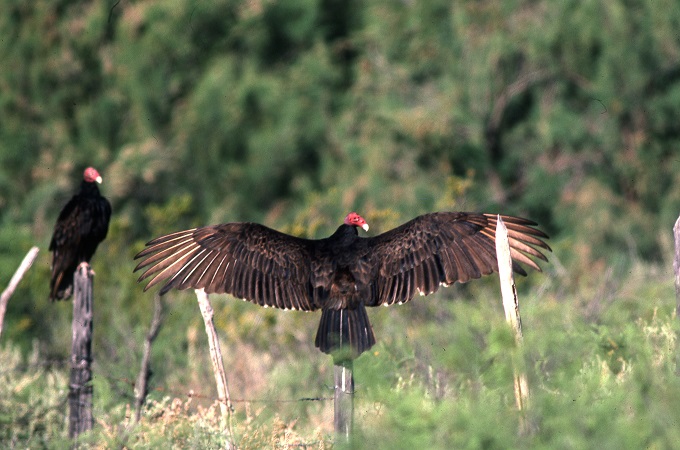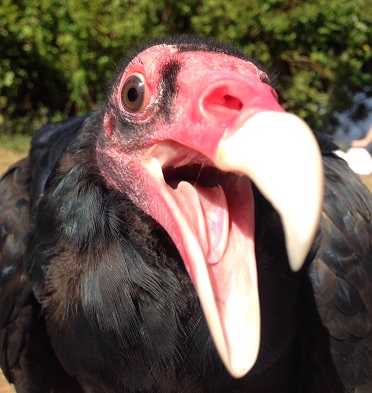Vulture Fun Facts
Wednesday, June 21st, 2017This is Passport to Texas
Vultures get a bad rap: maybe it’s because they aren’t “pretty birds”, or because they eat road kill. Non-game Ornithologist, Cliff Shackelford, says they deserve our respect as they are a helpful, interesting species.
Vultures have a role to play, what we call ‘ecosystem services’. These are benefits to us; it’s unfortunate that our cars hit animals—but think about what’s left behind. The vultures are cleaning up all the mess and we have to commend them for that.
How do vultures eat decaying carcasses and not get sick?
Vultures don’t get sick because they have certain bacteria and other flora in their guts that help them break down these carcasses.
Although a migratory species, vultures live year-round in Texas. When road kill freezes up north, those vultures travel south.
Because of our location, we not only host a lot more vultures in the winter season, we see a lot more passing through in the spring and fall migration.
Vultures are social birds and roost together, preferring the tall structures that allow an easy entrance and exit.
They like cell phone towers, rocky outcrops and ridges, an old tree that’s standing up really high. They like the tallest roof in the area.
Yet, they nest on the ground under fallen trees, and are excellent parents. Now that you’re better acquainted, we hope you’ll give vultures a little respect.
For Texas Parks and Wildlife…I’m Cecilia Nasti.




 Passport to Texas is a
Passport to Texas is a  Passport to Texas is made available by:
Passport to Texas is made available by: